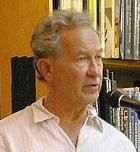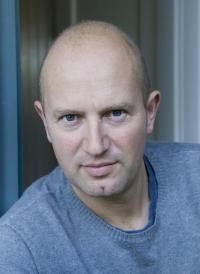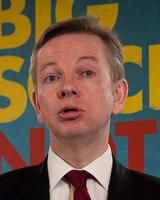The school history debate
Sur le forum Schoolhistory, les professeurs d'histoire réagissent aux consultations et aux projets de Michael Gove sur l'histoire scolaire.
Les débats semblent porter sur :
- L'identité nationale ( "britishness" : All pupils must learn Britain’s "island story" )
- La place du récit magistral
- La part des savoirs (le contenu événementiel) face aux skills (les capacités scolaires à développer grâce à l'histoire).
.
Nos collègues citent deux articles d'historiens expatriés, à lire sur le site du Guardian :
- Simon Schama (U Columbia) : my vision for history in schools - 09/11/2010
http://www.guardian.co.uk/education/2010/nov/09/future-history-schools

« In these economically and politically tricky times we need history's long look more than ever, says historian and government adviser Simon Schama, as he sets out six of the key events no child should miss out on ».
« How would you rather spend an hour : « learning about learning », trapped in some sort of indeterminate swamp of histo-geographic-social studies, or listening to and talking about, the murder of Thomas Becket ? »
What every (British) child should learn :
Murder in the cathedral
The black death, and the peasants revolt
The execution of King Charles I
The Indian moment
The Irish wars
The opium wars and China
SS a écrit pour la BBC A History of Britain en 15 épisodes (2000-2002).
.
- School history gets the TV treatment - 13/09/2010
That's not what's needed, says James Vernon (U Berkeley)
http://www.guardian.co.uk/education/2010/nov/16/school-history-gove-schama-tv

Pour James Vernon, « History provides us with a set of analytical skills that are indispensable for citizens who want to understand our present conditions. And those conditions are rarely made just in Britain... Historians do not just detail where and when change happens; they explain how and why it happens. This requires a point of view and organising narrative, but the coherence of the explanation is more important than the excitement of the story. We want students who aren't just entertained, but who can think critically and effectively about the world they live in ».
http://history.berkeley.edu/faculty/Vernon/
JD Clare résume la démarche des concepteurs-réformateurs de programme scolaire :
« 1. everybody else starts pitching in their topics until the list gets too long (so in the end they try to cram it all in in some kind of depth-v-overview way and overburden the curriculum ... and we're straight back to the accusation why do they wash over history?)
2. they begin to realise that one can't just include topics because you like them, so they begin to drill down into what principles should inform the list of topics, and then they find there are MANY different ways of organising content.
3. after a time of trying to reconcile the irreconcilable, they then say: "OK, let's stop talking about topics, let's talk about what we are trying to do when we teach History", and they begin to move towards a body of concepts and processes.
And the net result if they are not VERY focussed is a huge list of topics, against which one is supposed to teach a wide range of skills - hey! - like we had before!!!!! Presuming they keep the AfL/APP and other external structures within which History is taught in the classroom, then plus ca change ».
Source : Schoolhistory, rubrique The Cafe, réservée aux abonnés
- « The Education White paper » - « The education secretary, Michael Gove, has outlined plans to transform teacher training and recruitment, shake up school league tables to focus more on children's performance in academic subjects, and make it easier for headteachers to remove poor teachers and exclude disruptive children ».
Le Guardian (24/11/2010) cite une « accelerated route to leadership », des « tuition fees sponsored » pour les « Armed forces veterans with a degree if they wish to train as teachers »…
« A new award, the English baccalaureate, will be introduced for any student who secures good GCSE passes in English, maths, science, a modern or ancient foreign language, and a humanity »
http://www.guardian.co.uk/education/2010/nov/24/michael-gove-sweeping-school-reforms
Education White paper, la présentation du Times Educational Supplement (voir aussi le site TES New Teachers)
Sur The English Bacc, lire le point de vue de Jim Belben (Hodder education)
http://www.hoddereducation.co.uk/
Au temps de Blair et de Brown, David Blunkett (mai 1997), Estelle Morris (juin 2001), Charles Clarke (oct 2002), Ruth Kelly (dec 2004), Alan Johson (may 2006), Ed Balls (juin 2007) ont occupé le poste.
http://en.wikipedia.org/wiki/Secretary_of_State_for_Education
En 2005, Le Monde diplomatique avait publié L’école britannique livrée au patronat, un article de Richard Hatcher
http://www.monde-diplomatique.fr/2005/04/HATCHER/12086
Le cœur du débat semble très politicien et très idéologique. Michael Gove, le ministre, a failli naître en 1968. La référence ultime de ce néo-thatchérien, selon l'article de Wikipedia, c'est Burke, plus le ""marché"" dans sa version fondamentaliste. Selon lui, « education has been undermined by left-wing ideologues who have condemned (british) children to a prison house of ignorance » ... http://en.wikipedia.org/wiki/Michael_Gove

(source des photos : http://en.wikipedia.org )


/https%3A%2F%2Fassets.over-blog.com%2Ft%2Fcedistic%2Fcamera.png)
/http%3A%2F%2Fstorage.canalblog.com%2F70%2F74%2F161889%2F127250302_o.jpg)
/http%3A%2F%2Fstorage.canalblog.com%2F52%2F36%2F161889%2F116217435_o.jpg)
/https%3A%2F%2Fstorage.canalblog.com%2F02%2F17%2F161889%2F117651881_o.jpg)
/https%3A%2F%2Fstorage.canalblog.com%2F19%2F63%2F161889%2F117610470_o.jpg)